Political System: Local Democracy
What makes for a thriving democracy?
While democracy is often reduced to holding elections, there are a variety of ways that citizens of a democratic state can become involved in political decision-making processes and take an active part in shaping their immediate living environment. Sustainable local structures play a key role in this.
Here you will find many examples, case studies and ideas on how local democratic institutions and organisations, including political parties, trade unions, school and university councils and municipal authorities, function within their respective settings. Many of these examples are from Germany, where well-established structures for self-administration exist in a wide range of areas and at a variety of levels. Whether in Germany or elsewhere, these structures are not a gift from the government to the people, but rather represent hard-fought victories of the population. Often, such progress came during periods of social upheavals, such as during the Industrial Revolution of the 19th century, when members of the emerging working class took action. Or in the 1960s, when women, students, gays and others came together across Europe to form social movements that challenged the prevailing authoritarian societal structures. Self-administration and participation had to – and must still be – be fought for, utilised and defended in order to last. Even in Europe, these rights are by no means given. In recent years they have especially been subject to threat as they appear to run counter to calls for “professionalisation” and “efficiency”.
The current social upheaval in Syria offers an opportunity to gradually overcome outdated centralised structures and to develop concrete spaces where citizens can be involved in the development of a democratic community. Some of these changes require stable administrative structures that do not currently exist. Others can already be achieved today. For example, no one can prevent representatives of political parties from establishing democratic structures within their organisations. With the material presented here, we hope to encourage this development.
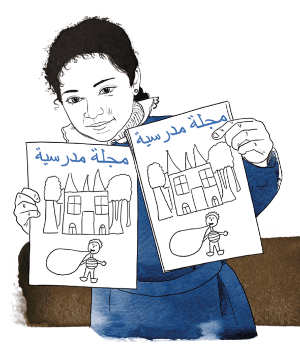
Co-determination and Self-administration in Schools
Making constructive contributions to the shaping of the society in which we live is something that must be learnt – ideally from a young age onwards. This paper therefore outlines the wide range of opportunities available for actively learning about and implementing democracy in schools. For teachers, pupils and parents, there are plentiful examples of how to develop independent committees
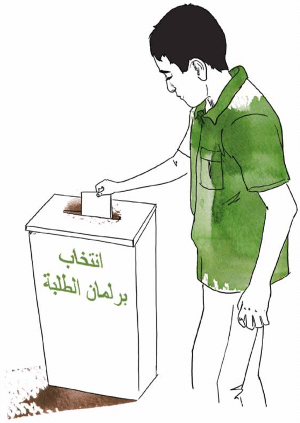
Self-administration by Students
Students are the decision-makers of tomorrow, and in many societies, they have been the driving force behind social movements. For a free society to develop, it is crucial for students to internalise and represent fundamental democratic values. Accordingly, it is important that self-administration by students is an established aspect of the institution at universities and higher education institutions in democratic
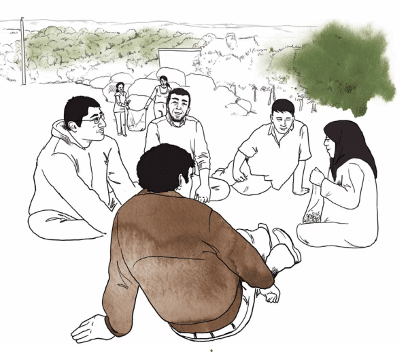
Co-operative Societies
Co-operative societies are formed voluntarily by people who wish to jointly pursue economic goals which they could not achieve as individuals. Such societies are commonly formed by consumers, for example, and in fields such as agriculture and housing construction. The concepts of self-organisation, self-help and solidarity play a major role in co-operative societies. They can therefore be used as an
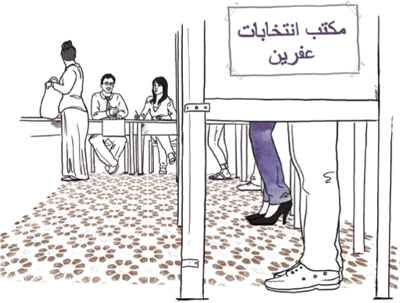
Parties
Political parties exist in almost every state, but the role of parties differs enormously between countries. While some states only have a single party, others have a party system involving many different parties with different alignments. The manner in which parties are organised in a particular country gives an insight into how democratic the state as a whole is organised.
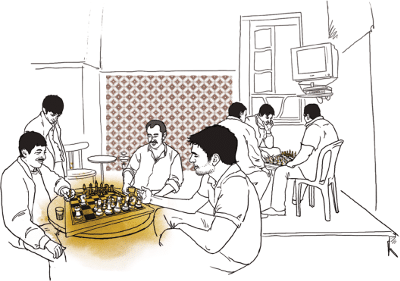
Associations
Associations are important institutions in which people come together to jointly pursue a long-term goal or shared interests. They create spaces in which the state has no influence. Associations, therefore, form an important counterweight to state institutions. The following paper uses examples to show what form a liberal right of association can take and how associations can be structured in
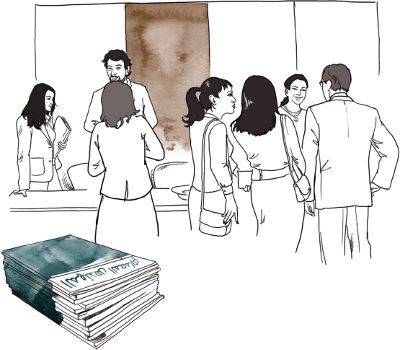
Professional Associations and Chambers
Persons belonging to the same professional group often have common interests in enforcement, professional rules, and laws. While mainly employees are organized in trade unions, self-employed people, in particular, join together in professional associations. Here is a brief overview of the work and objectives of professional associations and chambers. This topic is discussed more in detail in our full article.
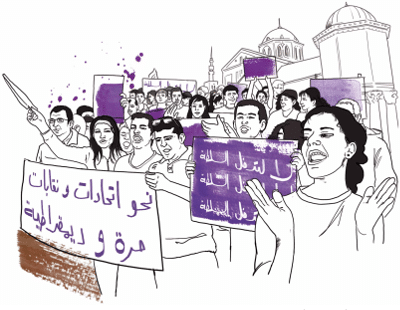
Trade Unions
Employees form trade unions in order to jointly represent their interests to their employers and the state. In democratic states, trade unions play an important role in preventing economic exploitation of employees and ensuring an appropriate level of income. This paper will therefore examine the following questions in closer detail: What are the typical functions of trade unions in democracies?
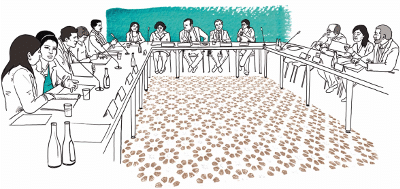
Academic Self-administration
Freedom of research and teaching, in other words the freedom of researchers from state intervention, is a fundamental pillar of democratic societies. This means that state institutions may not intervene in researchers’ work, even when the research receives public funding. To make this possible, many universities and other higher education institutions in democratic states are given the power of self-administration
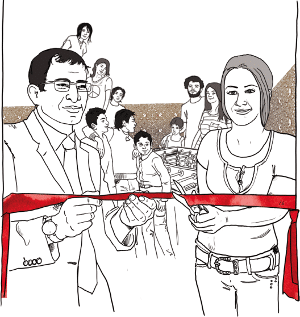
Municipal Self-administration
A large part of individuals’ lives plays out at the municipal level, meaning in their villages or neighbourhoods. Laws and decisions are enforced at the local level. This allows individuals to directly experience the consequences that political decisions have on their lives and to learn that it is worthwhile to become politically active. Orderly procedures and rules must be introduced
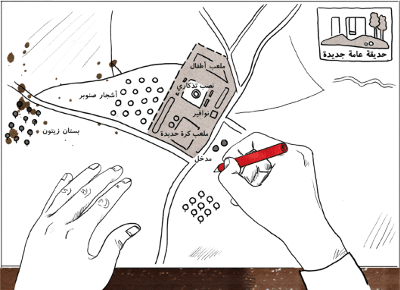
Municipality Parliament
Many decisions that affect individuals’ daily lives are taken at the municipal level. What specific forms can democratic procedures for planning, decision-making and enforcement take at this level? For example, if individual members of the public wish to create a new park, what would be the ideal procedure to follow in order to realise this? The following paper uses examples
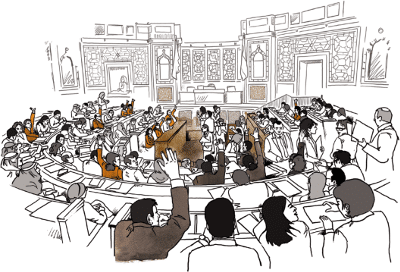
Elections
Elections are an indispensable part of any democracy. The citizens of any democratic state must have the ability to re-elect their representatives every few years. The procedure used for these elections differs between individual states. Some use first-past-the-post voting, while others use proportional representation or mixed-member proportional representation. These three methods will be presented in the following paper. It will
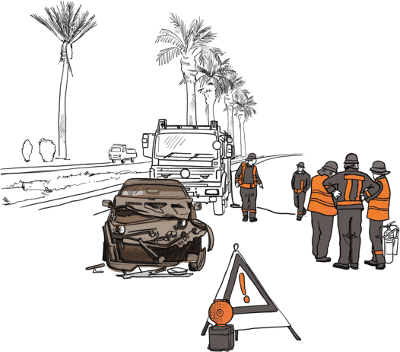
Volunteer Work
Voluntary work is an important part of municipal life. Many political offices at municipal level are filled by volunteers, as are numerous roles in municipal institutions such as the voluntary fire brigade or disaster control organisation. Associations, political parties and trade unions are also dependent on the unpaid work of private individuals. Without them, municipal life could not be maintained,

Individual Participation in the Legal System
Some democratic states give individuals the opportunity to engage in the legal system as volunteers. The involvement of people who are not legal professionals in court proceedings is intended to open up different perspectives on the process and the ruling. This can be done by appointing jurors or lay judges. It is of the utmost importance to observe certain basic
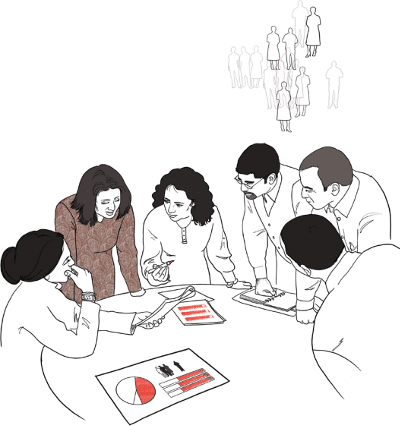
Quotas
How can it be ensured that members of disadvantaged groups, such as women and young people, are equally able to actively participate in local democracy? Quotas for seats in political institutions are one possibility. For example, many states have quotas ensuring that women hold a minimum proportion of seats in parliament. The introduction of quotas is a highly controversial topic.
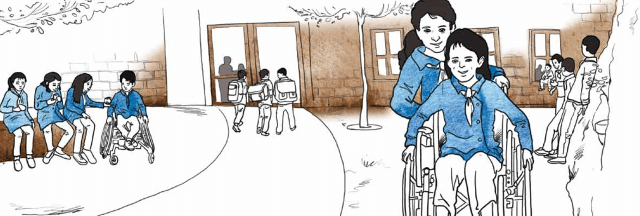
Inclusion
Some groups within society face more challenges than others in actively participating in political life. This applies above all to people who are excluded from many areas of social life due to prejudice and discrimination, such as people with disabilities. The term inclusion describes the active process of involving people with physical and mental disabilities instead of excluding them. The
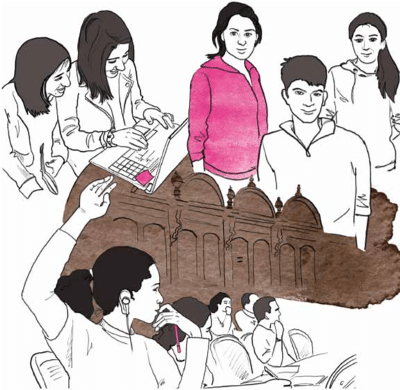
Young People
In many states in the Middle East and beyond, young people are unable to influence politics and societal decision-making processes to the extent that they would like. At the same time, young people are particularly heavily affected by many political decisions, for example, changes relating to education, labour or climate policy. Young people are often more open to change and
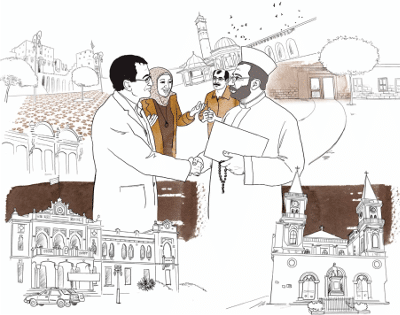
State and Religion
The relationship between the state and religion(s) is a significant factor in shaping a society. In some countries, religion plays an important role and forms part of the state doctrine, while in others state action is based on the principle of secularism, the strict separation of state and religion. Whether a state sees itself as secular has important consequences for

Example Statutes for a Sports Association
When a group founds a new association, it is prudent to lay down certain rules and principles for the association’s structure in writing. The procedures laid down in these written statutes offer guidance for managing life within the association and distributing responsibility. In the event of disputes, the association’s members can refer to the statutes. An example set of statutes
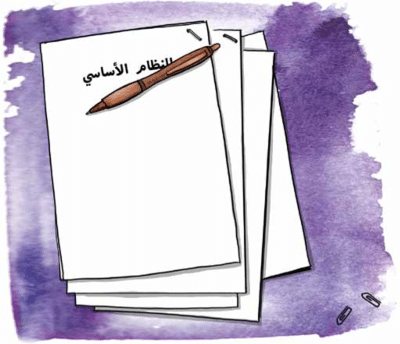
Example Statutes for Political Parties
Within a democratically organised political party, local branches play a major role. They enable the formation of party policy from the bottom up. They manage their internal affairs based on their own set of statutes. The overriding statutes of the party as a whole govern and limit the local branches’ autonomy. The following set of statutes can be used as
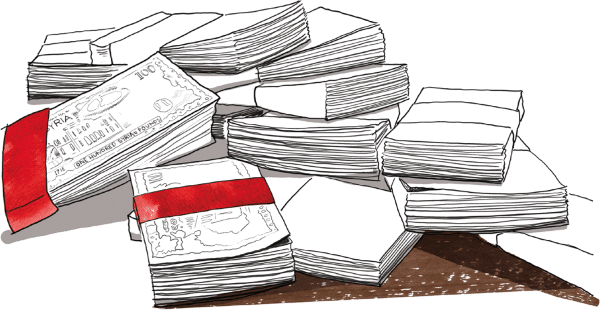
Municipal Finances
To strengthen the local governing authorities, it is important to give the municipalities control over spheres of authority which they can organise and in which they can take independent decisions. In many democratic states, municipalities take on important functions in areas such as infrastructure, education, public transport and health. Municipalities must have the financial means to take on these functions.
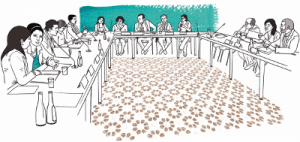
Academic Self-administration
Freedom of research and teaching, in other words the freedom of researchers from state intervention, is a fundamental pillar of democratic societies. This means that state institutions may not intervene in researchers’ work, even when the research receives public funding. To make this possible, many universities and other higher education institutions in democratic states are given the power of self-administration
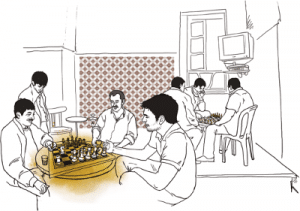
Associations
Associations are important institutions in which people come together to jointly pursue a long-term goal or shared interests. They create spaces in which the state has no influence. Associations, therefore, form an important counterweight to state institutions. The following paper uses examples to show what form a liberal right of association can take and how associations can be structured in
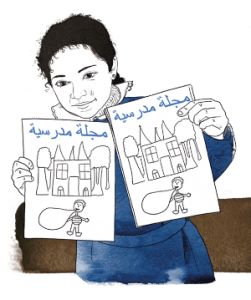
Co-determination and Self-administration in Schools
Making constructive contributions to the shaping of the society in which we live is something that must be learnt – ideally from a young age onwards. This paper therefore outlines the wide range of opportunities available for actively learning about and implementing democracy in schools. For teachers, pupils and parents, there are plentiful examples of how to develop independent committees
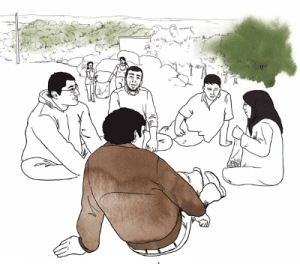
Co-operative Societies
Co-operative societies are formed voluntarily by people who wish to jointly pursue economic goals which they could not achieve as individuals. Such societies are commonly formed by consumers, for example, and in fields such as agriculture and housing construction. The concepts of self-organisation, self-help and solidarity play a major role in co-operative societies. They can therefore be used as an
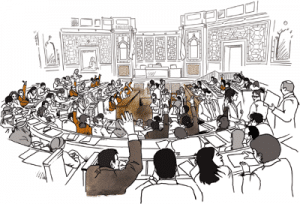
Elections
Elections are an indispensable part of any democracy. The citizens of any democratic state must have the ability to re-elect their representatives every few years. The procedure used for these elections differs between individual states. Some use first-past-the-post voting, while others use proportional representation or mixed-member proportional representation. These three methods will be presented in the following paper. It will

Example Statutes for a Sports Association
When a group founds a new association, it is prudent to lay down certain rules and principles for the association’s structure in writing. The procedures laid down in these written statutes offer guidance for managing life within the association and distributing responsibility. In the event of disputes, the association’s members can refer to the statutes. An example set of statutes
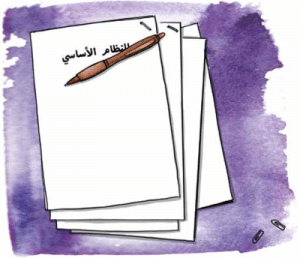
Example Statutes for Political Parties
Within a democratically organised political party, local branches play a major role. They enable the formation of party policy from the bottom up. They manage their internal affairs based on their own set of statutes. The overriding statutes of the party as a whole govern and limit the local branches’ autonomy. The following set of statutes can be used as
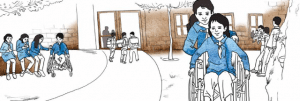
Inclusion
Some groups within society face more challenges than others in actively participating in political life. This applies above all to people who are excluded from many areas of social life due to prejudice and discrimination, such as people with disabilities. The term inclusion describes the active process of involving people with physical and mental disabilities instead of excluding them. The

Individual Participation in the Legal System
Some democratic states give individuals the opportunity to engage in the legal system as volunteers. The involvement of people who are not legal professionals in court proceedings is intended to open up different perspectives on the process and the ruling. This can be done by appointing jurors or lay judges. It is of the utmost importance to observe certain basic
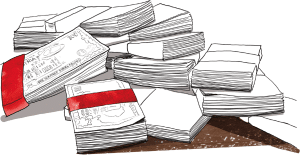
Municipal Finances
To strengthen the local governing authorities, it is important to give the municipalities control over spheres of authority which they can organise and in which they can take independent decisions. In many democratic states, municipalities take on important functions in areas such as infrastructure, education, public transport and health. Municipalities must have the financial means to take on these functions.
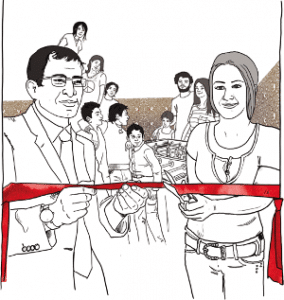
Municipal Self-administration
A large part of individuals’ lives plays out at the municipal level, meaning in their villages or neighbourhoods. Laws and decisions are enforced at the local level. This allows individuals to directly experience the consequences that political decisions have on their lives and to learn that it is worthwhile to become politically active. Orderly procedures and rules must be introduced
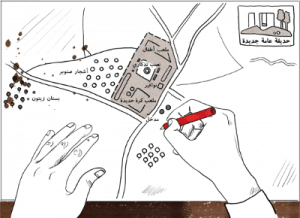
Municipality Parliament
Many decisions that affect individuals’ daily lives are taken at the municipal level. What specific forms can democratic procedures for planning, decision-making and enforcement take at this level? For example, if individual members of the public wish to create a new park, what would be the ideal procedure to follow in order to realise this? The following paper uses examples
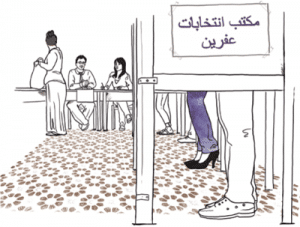
Parties
Political parties exist in almost every state, but the role of parties differs enormously between countries. While some states only have a single party, others have a party system involving many different parties with different alignments. The manner in which parties are organised in a particular country gives an insight into how democratic the state as a whole is organised.
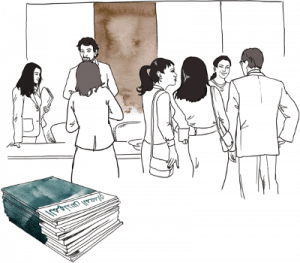
Professional Associations and Chambers
Persons belonging to the same professional group often have common interests in enforcement, professional rules, and laws. While mainly employees are organized in trade unions, self-employed people, in particular, join together in professional associations. Here is a brief overview of the work and objectives of professional associations and chambers. This topic is discussed more in detail in our full article.
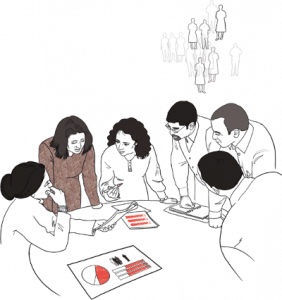
Quotas
How can it be ensured that members of disadvantaged groups, such as women and young people, are equally able to actively participate in local democracy? Quotas for seats in political institutions are one possibility. For example, many states have quotas ensuring that women hold a minimum proportion of seats in parliament. The introduction of quotas is a highly controversial topic.
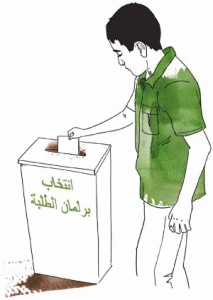
Self-administration by Students
Students are the decision-makers of tomorrow, and in many societies, they have been the driving force behind social movements. For a free society to develop, it is crucial for students to internalise and represent fundamental democratic values. Accordingly, it is important that self-administration by students is an established aspect of the institution at universities and higher education institutions in democratic
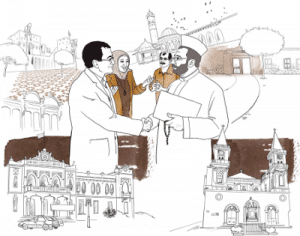
State and Religion
The relationship between the state and religion(s) is a significant factor in shaping a society. In some countries, religion plays an important role and forms part of the state doctrine, while in others state action is based on the principle of secularism, the strict separation of state and religion. Whether a state sees itself as secular has important consequences for
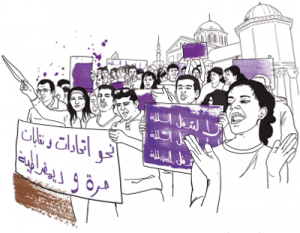
Trade Unions
Employees form trade unions in order to jointly represent their interests to their employers and the state. In democratic states, trade unions play an important role in preventing economic exploitation of employees and ensuring an appropriate level of income. This paper will therefore examine the following questions in closer detail: What are the typical functions of trade unions in democracies?
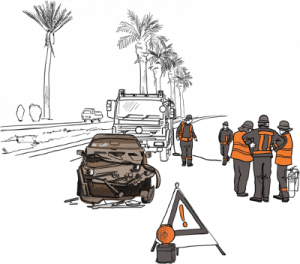
Volunteer Work
Voluntary work is an important part of municipal life. Many political offices at municipal level are filled by volunteers, as are numerous roles in municipal institutions such as the voluntary fire brigade or disaster control organisation. Associations, political parties and trade unions are also dependent on the unpaid work of private individuals. Without them, municipal life could not be maintained,
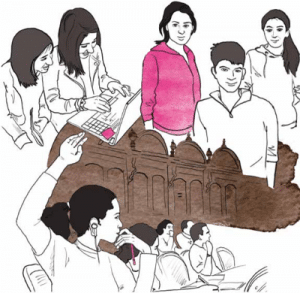
Young People
In many states in the Middle East and beyond, young people are unable to influence politics and societal decision-making processes to the extent that they would like. At the same time, young people are particularly heavily affected by many political decisions, for example, changes relating to education, labour or climate policy. Young people are often more open to change and

